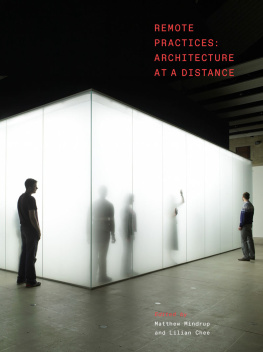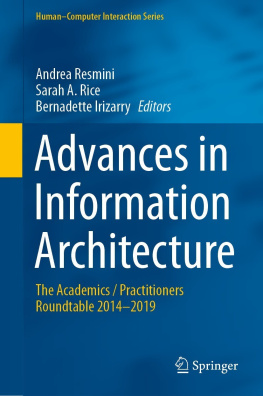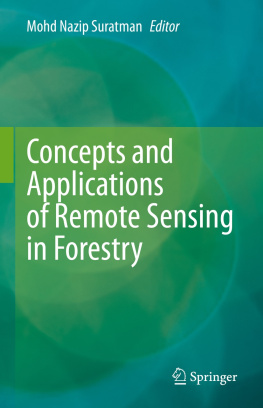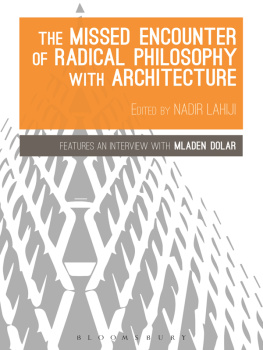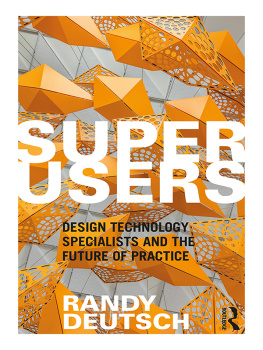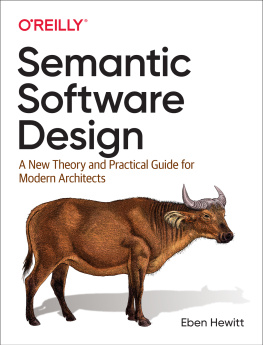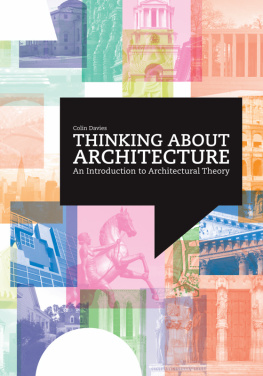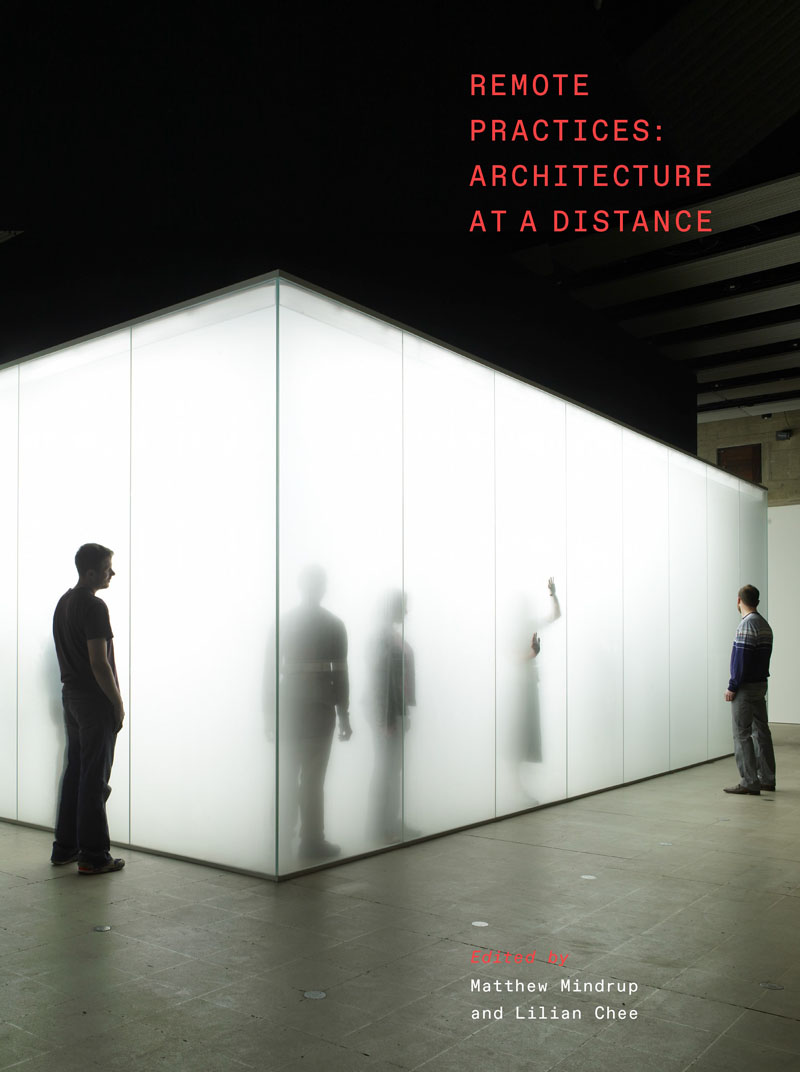
First published in 2022 by Lund Humphries
Lund Humphries
Office 3, Book House
261A City Road
London EC1V 1JX
UK
www.lundhumphries.com
Remote Practices: Architecture at a Distance
Matthew Mindrup and Lilian Chee, 2022
All rights reserved
ISBN: 9781848225312
A Cataloguing-in-Publication record for this book is available from the British Library.
All rights reserved. No part of this publication may be reproduced, stored in a retrieval system or transmitted in any form or by any means, electrical, mechanical or otherwise, without first seeking the permission of the copyright owners and publishers. Every effort has been made to seek permission to reproduce the images in this book. Any omissions are entirely unintentional, and details should be addressed to the publishers.
Matthew Mindrup and Lilian Chee have asserted their right under the Copyright, Designs and Patent Act, 1988, to be identified as the Editors of this Work.
Cover: Antony Gormley, Blind Light, 2007
Photograph: Stephen White & Co., London
Copyedited by Pamela Bertram
Designed by Jacqui Cornish
Proofread by Patrick Cole
Cover design by Paul Arnot
Set in Arnhem Pro and ABC Favorit Mono
Printed in Estonia
CONTENTS
Editors Note: In Praise of the Remote
Matthew Mindrup
Introduction
Matthew Mindrup
1 Toward a Political Ecology of Architecture
Joan Ockman
2 Greater Horizons: Origins of Remote and Global Architectural Practices
Paul Emmons
3 On the Remoteness of CADs Gesture
Jason Crow
4 Extreme Interiority
Nerma Cridge
5 Winging it (with Alberti): Learning from Distance
Lisa Landrum
6 Youve Got Mail: Historical Precedents and Contemporary Relevance of Epistolary Architecture
Nomie Despland-Lichtert and Brendan Sullivan Shea
7 Architectural Education in the First Person: Professionalism and Care in a Pandemic Year
Naomi Stead
8 Fresh Eyes: The Practice of the Remote at the Bauhaus
Matthew Mindrup and Jodi LaCoe
Introduction
Lilian Chee
9 Seven Studies for A Holding (23 March 31 May 2020)
Jane Rendell
10 Critical Proximities: In Bed with Architecture
Chris L. Smith
11 Experiences, Everywhere: The Making of Informated Space
Ioanna Sotiriou
12 An Emotional Critique of Remote Practices
Philip Ursprung
13 Drawing in: Bodies in Motion
Belinda Mitchell
14 A Digital Table: To Eat (Critically) Together
Gabriela Aquije Zegarra
16 Amidst : Afterimage, Affect, Architecture
Lilian Chee
In the Shadow of A Tentative Conclusion
Lilian Chee with Tan Yi-Ern Samuel
NOTES ON CONTRIBUTORS
Gabriela Aquije Zegarra is a Peruvian architect (cole Nationale Suprieure Agronomique de Toulouse (ENSAT) France 2012 and Pontifical Catholic University of Peru (PUCP) 2015) and a design researcher, currently based in Germany. In 2020, she obtained her MSc Design Research as part of the COOP academic partnership between the Bauhaus Stiftung, Hochschule Anhalt, and Universitt Humboldt zu Berlin. Her work includes landscape architecture projects, curatorial research, and exhibition design, in partnership with diverse designers and collectives across North and South America and Europe. As a Future Architecture 2021 fellow, she is currently focused on the link between bioregional food systems, gastro-politics, and critical design. Gabriela is also part of the core team of the international digital project, Visualizing the Virus, led by Dr Sria Chatterjee and supported by the Digital Research Infrastructure for the Arts and Humanities (DARIAH-EU), the University of Applied Sciences and Arts Northwestern Switzerland (FHNW), Basel and the Center for Digital Humanities, Princeton University.
Lilian Chee is Associate Professor at the Department of Architecture, National University of Singapore (NUS), where she co-leads the Research by Design cluster. Her research connects embodied experience and affective evidence with architectural representation, affect theory, feminist politics, and creative practice methods. The award-winning essay film collaboration 03-FLATS (2014), which she conceptualised and researched, has been screened in major cities and is used in numerous university curricula. Her monograph, Architecture and Affect: Precarious Spaces theorizes affect at the intersections of architectural discourse and encounter. She is co-directing a series of short films Objects for Thriving (2022) looking at elderly occupants through their objects, domestic spaces, and structures of feeling. Her current funded research project explores home-based work practices through an affective-feminist perspective.
Nerma Prnjavorac Cridge is an academic and author, currently teaching at the Architectural Association, Greenwich and Regents Universities and also directing Drawing Agency, London. Her first monograph, Drawing the Unbuildable, on the Soviet avant-garde, was published in 2015. Recent publications include Printing the Familiar, in Re:Print (2018), edited by Vronique Chance and Duncan Ganley, and Restless: Drawn by Zaha Hadid, in The Routledge Companion to Women in Architecture (2021), edited by Anna Sokolina. At present, Nerma is working on her second monograph, entitled The Politics of Abstraction, on monuments and secrets from the former Yugoslavia.
Jason Crow is a senior lecturer at Monash University and a licensed architect in the state of Pennsylvania. His research explores how technological changes impact material ontology and artisanal epistemology. He was a research fellow at the Canadian Centre for Architecture and an Arthur C. Tagge fellow at McGill University, where he completed his PhD dissertation examining the influence of material culture on the origins of Gothic architecture. He is the author of Approaching a Material History of Architecture, in Performative Materials in Architecture and Design (2013), edited by Rashida Ng and Sneha Patel, and of Fear and Bernard of Clairvauxs Living Stones, in Room One Thousand, the University of California at Berkeleys interdisciplinary journal on architectural history.
Nomie Despland-Lichtert is an educator, urban historian, and independent curator. Currently teaching at Texas Tech University, she holds a BFA from Concordia University, a post-professional Master of Architecture from McGill University, and a Masters in Curatorial Studies from the University of Southern California.
Paul Emmons is a registered architect and the Patrick and Nancy Lathrop Professor of Architecture at Virginia Tech, where he serves as Associate Dean of Graduate Studies for the College of Architecture and Urban Studies. He is based at the Washington-Alexandria Architecture Center where he is also Coordinator of the PhD in Architecture and Design Research Program. He earned a PhD in Architecture from the University of Pennsylvania and a Master of Architecture from the University of Minnesota. His research on design practices focusing on architectural drawing has been presented and published at venues around the world. His book, Drawing Imagining Building: Embodiment in Architectural Design Practices, was published in 2020, along with his co-edited volume, Ceilings and Dreams: The Architecture of Levity
Next page
